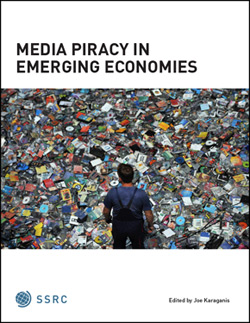
“[P]iracy is better conceived as a failure of affordable access to media in legal markets.” So says the just-released Media Piracy in Emerging Economies study, which looked at the hows and whys of piracy in countries like Brazil, India, Mexico, and Russia. Shocking, right?
The main reason for piracy in these countries is that the local price of whatever is too expensive for the population to support. The study notes that the local price of Microsoft Office in countries like Brazil and South Africa is five times price, relatively speaking, as it is here in the U.S. So it’d be like Microsoft charging you $750 for the Home & Student version of Office for Mac. Who would buy that when you could just go down the street to the guy and buy it for $5? (I’ve often heard that this is the case in Brazil with video games, that prices there are crazy compared to what you’d pay here in the U.S. It’s also partially why CD Projekt was lauded for its fair pricing scheme for The Witcher 2.)
Another interesting part of the study is that it seems anti-piracy education has failed. But that probably relates to the first point: a commercial on TV saying “piracy is evil, don’t be evil!” conflicts with the fact that I’m not going to pay $750 for Office when I can get it for $5.
The study also found that lobbying efforts do a great job of changing the law to meet their anti-piracy needs, but that actually getting people to obey these fancy need laws is mighty difficult.
So, nothing too crazy, and it seems like the summation of little bits of info we’ve all read over and over again over the years, but it is useful to be able to point to a single study and say, “See, this is what I’m talking about.”